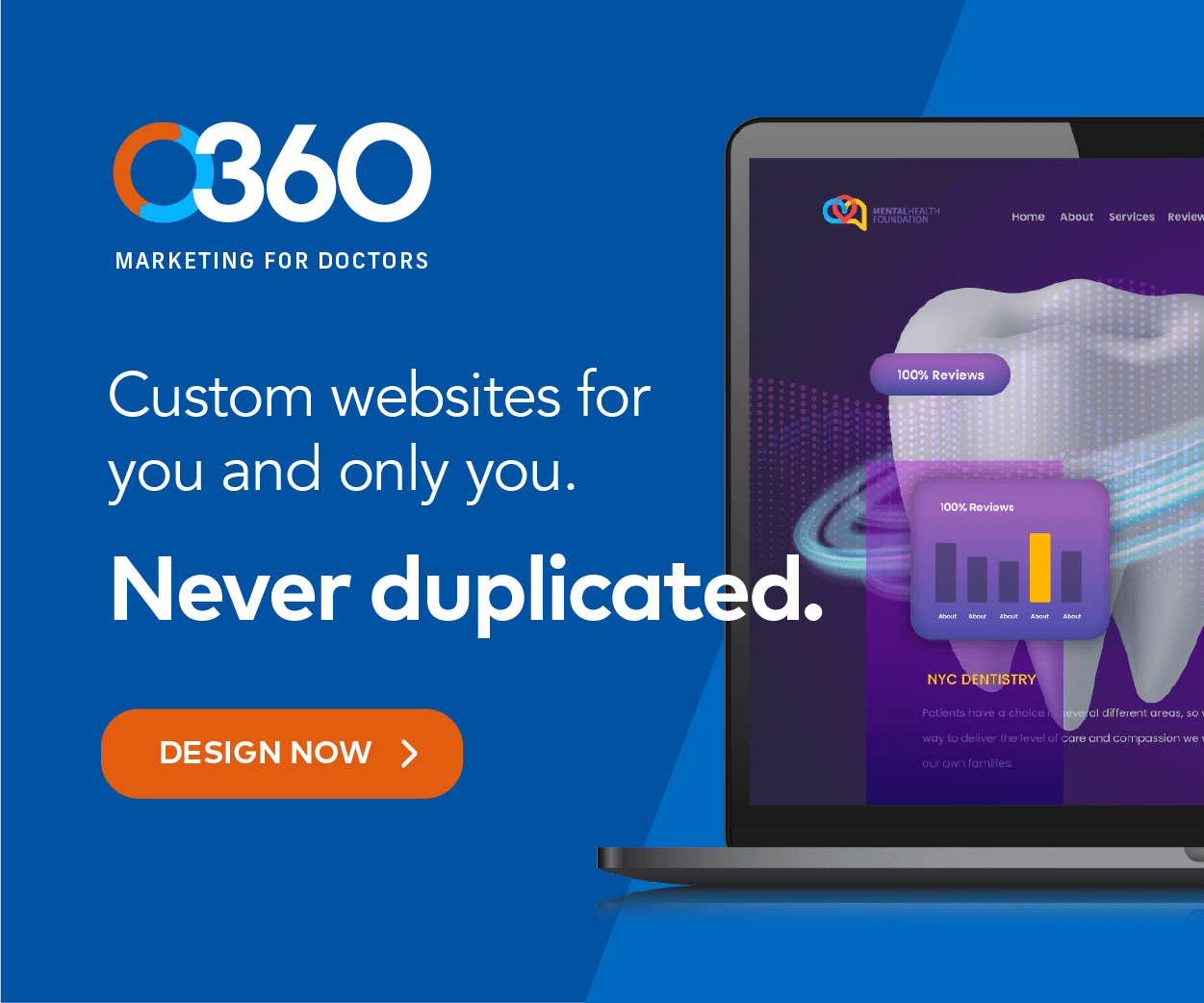If you have a dental website and want it to rank higher on Google, there are several strategies that you can use. Here are some tips to help improve your website’s search engine ranking:
- Use Relevant Keywords – Ensure that your website includes keywords that potential patients would search for when looking for a dentist. This can include specific services, such as teeth whitening or braces, as well as location-specific keywords like “dentist in New York City.”
- Optimize Your Content – Make sure your website’s content is high-quality and optimized for SEO. This includes using header tags, meta descriptions, and alt tags for images.
- Build Backlinks – Backlinks from reputable sources can help improve your website’s authority and search engine ranking. Consider reaching out to other dental websites or local directories to see if they would be interested in linking to your site.
- Claim Your Google My Business Listing – Ensure that your practice is listed on Google My Business and that your information is accurate and up-to-date. This can help improve your local search ranking and make it easier for potential patients to find you.
Smart PPC Strategy to Get Top of Search Rankings
Pay-per-click (PPC) advertising can be an effective way to get your website to the top of search rankings. Here are some tips to help you create a smart PPC strategy:
- Identify Your Target Audience – Ensure that your ads are targeted towards the people most likely to be interested in your services. This can include specific demographics or geographic locations.
- Use Relevant Keywords – Just like with SEO, using relevant keywords is crucial to the success of your PPC ads. Ensure that you’re using keywords that potential patients would search for when looking for a dentist.
- Create Compelling Ad Copy – Your ad copy should be attention-grabbing and informative. It should clearly convey the benefits of your services and what sets your practice apart from others in the area.
- Test and Refine – Continuously monitor your PPC campaigns and make adjustments as needed. This can include adjusting your bidding strategy or testing different ad copy to see what works best.
How a Fast-Loading Website Affects Your Ranking
Website load time can have a significant impact on your website’s search engine ranking. Here are some ways that a fast-loading website can help improve your ranking:
- Improved User Experience – A fast-loading website provides a better user experience for visitors. This can lead to increased engagement and a lower bounce rate, both of which can positively impact your search engine ranking.
- Reduced Abandonment – If your website takes too long to load, visitors may abandon it before it even fully loads. This can negatively impact your bounce rate and search engine ranking.
- Mobile Optimization – With more people accessing websites from their mobile devices, a fast-loading mobile site is crucial. Google prioritizes mobile-friendly sites, and a fast-loading mobile site can give you a significant advantage in search rankings.
- Improved Crawling – Search engine bots crawl your website to index its content. A fast-loading website can make this process more efficient and ensure that all of your pages are indexed properly.
How to Get Great Search Engine Ranking
Achieving a great search engine ranking requires a combination of strategies. Here are some tips to help improve your website’s ranking:
- Conduct Keyword Research – Identify the keywords that potential patients are searching for when looking for a dentist, and use them throughout your website’s content.
- Optimize Your Website – Ensure that your website is optimized for SEO, including using header tags, meta descriptions, and alt tags for images.
- Build Backlinks – High-quality backlinks from reputable sources can help improve your website’s authority and search engine ranking.
- Claim Your Google My Business Listing
5 Elements That Help You Rank High
When it comes to ranking high on search engines, there are several elements that you need to consider. Here are five key elements that can help improve your website’s search engine ranking:
- Content – High-quality, relevant content is crucial for ranking high on search engines. Ensure that your website’s content is optimized for SEO and includes relevant keywords.
- Backlinks – High-quality backlinks from reputable sources can help improve your website’s authority and search engine ranking.
- Website Structure – A well-structured website can make it easier for search engine bots to crawl and index your site’s content. This can include using header tags, optimizing images, and having a clear site navigation.
- User Experience – A positive user experience can lead to increased engagement and a lower bounce rate, both of which can positively impact your search engine ranking. This can include a fast-loading website, easy navigation, and clear calls to action.
- Mobile Optimization – With more people accessing websites from their mobile devices, a mobile-optimized site is crucial. Google prioritizes mobile-friendly sites, and a mobile-optimized site can give you a significant advantage in search rankings.
Get Your Website Ranked High on Google Search
Ranking high on Google search can be a challenge, but there are several strategies you can use to improve your website’s search engine ranking. Here are some tips to help get your website ranked high on Google search:
- Conduct Keyword Research – Identify the keywords that potential patients are searching for when looking for a dentist, and use them throughout your website’s content.
- Optimize Your Website – Ensure that your website is optimized for SEO, including using header tags, meta descriptions, and alt tags for images.
- Build Backlinks – High-quality backlinks from reputable sources can help improve your website’s authority and search engine ranking.
- Claim Your Google My Business Listing – Ensure that your practice is listed on Google My Business and that your information is accurate and up-to-date. This can help improve your local search ranking and make it easier for potential patients to find you.
- Use Social Media – Social media can help increase your website’s visibility and improve your search engine ranking. Ensure that your website is linked to your social media profiles and that you’re regularly sharing content.
OBGYN Websites and SEO Practices
SEO is just as important for OBGYN websites as it is for any other type of website. Here are some SEO practices that can help improve your OBGYN website’s search engine ranking:
- Use Relevant Keywords – Ensure that your website includes keywords that potential patients would search for when looking for an OBGYN. This can include specific services, such as prenatal care or gynecological exams, as well as location-specific keywords like “OBGYN in New York City.”
- Optimize Your Content – Make sure your website’s content is high-quality and optimized for SEO. This includes using header tags, meta descriptions, and alt tags for images.
- Build Backlinks – Backlinks from reputable sources can help improve your website’s authority and search engine ranking. Consider reaching out to other healthcare websites or local directories to see if they would be interested in linking to your site.
- Claim Your Google My Business Listing – Ensure that your practice is listed on Google My Business and that your information is accurate and up-to-date. This can help improve your local search ranking and make it easier for potential patients to find you.
You’re Not Going to Find the Time to Perform Your Own SEO – Hire Us
Performing your own SEO can be a time-consuming process, and it’s often best to hire a professional SEO company. Here are some reasons why you should consider hiring a professional SEO company:
Implement Good On-Site SEO
On-site SEO refers to the practice of optimizing individual web pages in order to rank higher and earn more relevant traffic from search engines. Here are some tips to help implement good on-site SEO:
- Use Relevant Keywords – Ensure that your website includes keywords that potential patients would search for when looking for a dentist. This can include specific services, such as teeth whitening or braces, as well as location-specific keywords like “dentist in New York City.”
- Optimize Your Content – Make sure your website’s content is high-quality and optimized for SEO. This includes using header tags, meta descriptions, and alt tags for images.
- Use Internal Linking – Internal linking can help search engine bots crawl and index your site’s content more efficiently, and can also help increase engagement and reduce bounce rate.
- Optimize Your URLs – Ensure that your URLs are clear and concise, and include relevant keywords. This can help improve your website’s search engine ranking and make it easier for visitors to navigate your site.
SEO Needs to be Utilized by Medical Specialists
Medical specialists need to utilize SEO to improve their online visibility and reach more potential patients. Here are some reasons why SEO is crucial for medical specialists:
- Increased Visibility – A strong online presence can help medical specialists stand out in a competitive market and reach more potential patients.
- Better User Experience – Optimizing your website for SEO can also improve the user experience for visitors, making it easier for them to find the information they’re looking for and engage with your practice.
- Improved Trust and Credibility – Ranking high on search engines can help improve your practice’s credibility and establish trust with potential patients.
- Cost-Effective Marketing – SEO can be a cost-effective marketing strategy for medical specialists, as it can help drive more traffic to your website without the high costs associated with traditional marketing methods.
Dental Website Tricks with SEO
There are several tricks that dental websites can use to improve their search engine ranking. Here are some dental website tricks with SEO:
- Use Relevant Keywords – Ensure that your website includes keywords that potential patients would search for when looking for a dentist. This can include specific services, such as teeth whitening or braces, as well as location-specific keywords like “dentist in New York City.”
- Optimize Your Content – Make sure your website’s content is high-quality and optimized for SEO. This includes using header tags, meta descriptions, and alt tags for images.
- Utilize Local SEO – Local SEO can help improve your dental practice’s visibility in your local area. This can include claiming your Google My Business listing, optimizing your website for local keywords, and building backlinks from local directories.
- Use Video – Video can be a powerful tool for engaging visitors and improving your website’s search engine ranking. Consider creating informative and engaging videos that showcase your services and expertise.
Boost Efforts by Combining Web Design with SEO
Combining web design with SEO can help improve your website’s search engine ranking and overall user experience. Here are some tips to help boost your efforts by combining web design with SEO:
- Mobile Optimization – Ensure that your website is mobile-optimized, as Google prioritizes mobile-friendly sites in its search results. A mobile-optimized site can also provide a better user experience for visitors.
- Use Clear Navigation – Clear and concise navigation can help visitors find the information they’re looking for quickly and easily. This can also help search engine bots crawl and index your site’s content more efficiently.
- Utilize White Space – White space can help improve the visual appeal of your website and make it easier for visitors to read and engage with your content.
- Optimize Images – Ensure that your website’s images are optimized for SEO, including using alt
How SEO Generates Leads and Invites Patients
SEO can be a powerful tool for generating leads and inviting patients to your website. Here are some ways that SEO can help generate leads and invite patients:
- Increased Visibility – By ranking higher on search engines, your dental practice can increase its online visibility and reach more potential patients.
- Better User Experience – Optimizing your website for SEO can also improve the user experience for visitors, making it easier for them to find the information they’re looking for and engage with your practice.
- Improved Credibility – Ranking high on search engines can help improve your practice’s credibility and establish trust with potential patients.
- Cost-Effective Marketing – SEO can be a cost-effective marketing strategy for dental practices, as it can help drive more traffic to your website without the high costs associated with traditional marketing methods.
Why You Need Both SEO & PPC
While both SEO and PPC can be effective marketing strategies, using both in combination can provide even greater benefits. Here are some reasons why you need both SEO and PPC:
- Increased Visibility – Using both SEO and PPC can help increase your website’s visibility in search results, making it easier for potential patients to find you.
- Increased Click-Through Rates – Using both SEO and PPC can also increase your click-through rates, as visitors are more likely to click on multiple links when they see your practice multiple times in search results.
- Better Conversion Rates – Using both SEO and PPC can also improve your conversion rates, as visitors are more likely to engage with your practice when they see it multiple times in search results.
- Improved ROI – By using both SEO and PPC, you can achieve a higher return on investment (ROI) and maximize your marketing budget.
SEO Scams to Avoid – Trust the Pros
When it comes to SEO, there are several scams that you should be aware of. Here are some SEO scams to avoid:
- Guaranteed Results – No SEO company can guarantee specific results, as search engine algorithms are constantly changing.
- Cheap Services – If an SEO company is offering services at a significantly lower cost than other providers, it’s likely too good to be true.
- No Contract – Avoid working with SEO companies that don’t offer a contract or require a deposit upfront.
- Black Hat SEO – Avoid SEO companies that use black hat tactics, as this can lead to your website being penalized by search engines.
Marketing: PPC vs. SEO
When it comes to marketing, both PPC and SEO can be effective strategies. Here are some pros and cons to consider when deciding between PPC and SEO:
PPC Pros:
- Immediate Results – PPC can provide immediate results, as your ads will start appearing in search results as soon as your campaign is launched.
- Targeted Advertising – PPC allows you to target specific demographics and geographic locations, ensuring that your ads are shown to the right audience.
PPC Cons:
- Cost – PPC can be costly, particularly if you’re in a competitive market.
- Limited Exposure – Your ads will only appear for as long as you’re paying for them, which means that once your campaign ends, your exposure will also end.
SEO Pros:
- Cost-Effective – SEO can be a cost-effective marketing strategy, particularly in the long term.
- Long-Term Benefits – While it may take longer to see results, the benefits of SEO can last for a long time.
SEO Cons:
- Slow Results – SEO can take time to see results, particularly if you’re in a competitive market.
- Constant Updates – SEO requires constant updates and adjustments to keep up with changing search engine algorithms.
Increasing Online Visibility: Choosing the Right SEO Company
Choosing the right SEO company can be critical to increasing your online visibility and driving traffic to your website. Here are some tips to help you choose the right SEO company:
- Check their experience – Look for an SEO company with a proven track record of success in your industry.
- Read reviews and testimonials – Look for reviews and testimonials from previous clients to get a sense of their experience with the company.
- Check their strategies – Ensure that the SEO company uses ethical, white-hat SEO strategies that adhere to search engine guidelines.
- Look for transparency – A good SEO company will be transparent about their strategies and provide regular reports on their progress.
How Dentists Can Adjust to Changes in SEO
SEO is constantly evolving, and it’s important for dentists to stay up-to-date with the latest changes in order to maintain their online visibility. Here are some ways dentists can adjust to changes in SEO:
- Focus on User Experience – Search engines are increasingly prioritizing user experience, so dentists should focus on providing a high-quality user experience for visitors.
- Optimize for Voice Search – With the rise of voice search, dentists should optimize their website for natural language queries.
- Prioritize Local SEO – Local SEO can be a powerful tool for dental practices, particularly those that rely on local patients.
- Create High-Quality Content – High-quality, informative content can help improve your website’s search engine ranking and provide value to visitors.
Top 5 Specialties That May Not Need SEO
While SEO can be a valuable marketing tool for many specialties, there are some specialties that may not benefit as much from SEO. Here are the top 5 specialties that may not need SEO:
- Urgent Care – Urgent care clinics typically rely on walk-in patients and may not benefit from a long-term SEO strategy.
- Physical Therapy – Physical therapy clinics often rely on physician referrals and may not need to focus as heavily on SEO.
- Podiatry – While SEO can be helpful for podiatry practices, they may not need to invest as heavily in SEO as other specialties.
- Oncology – Oncologists may benefit more from physician referrals and other marketing strategies.
- Pain Management – Pain management clinics may benefit more from targeted PPC campaigns and physician referrals.














